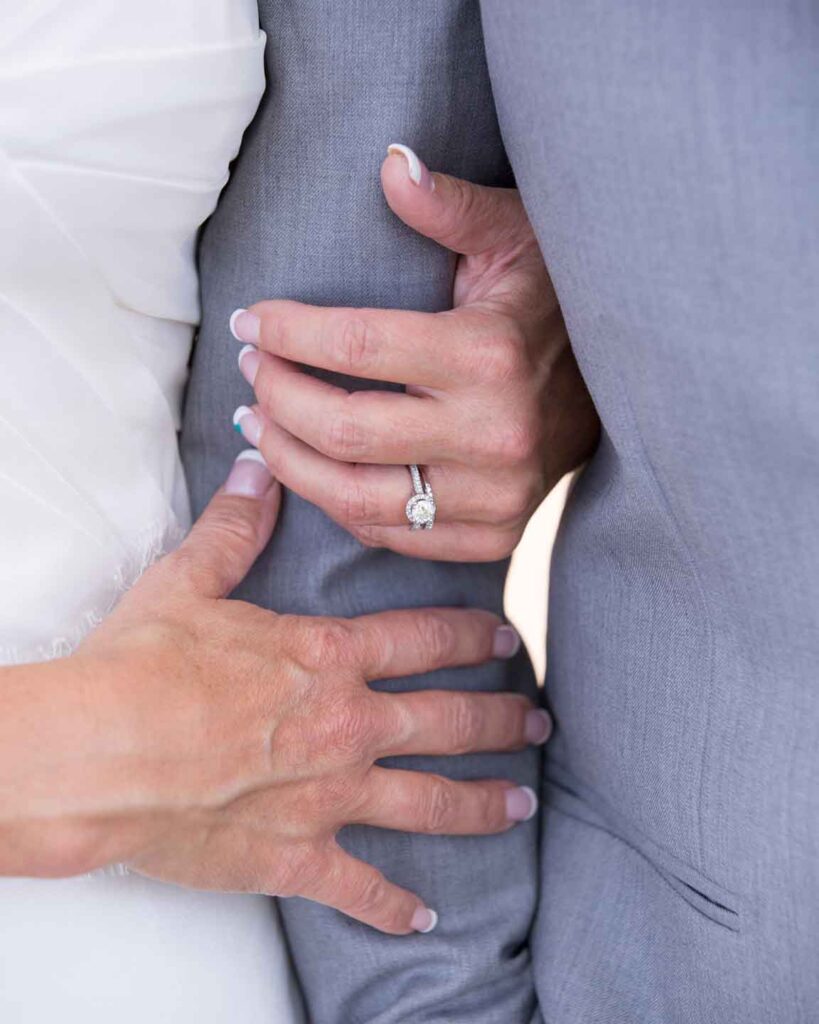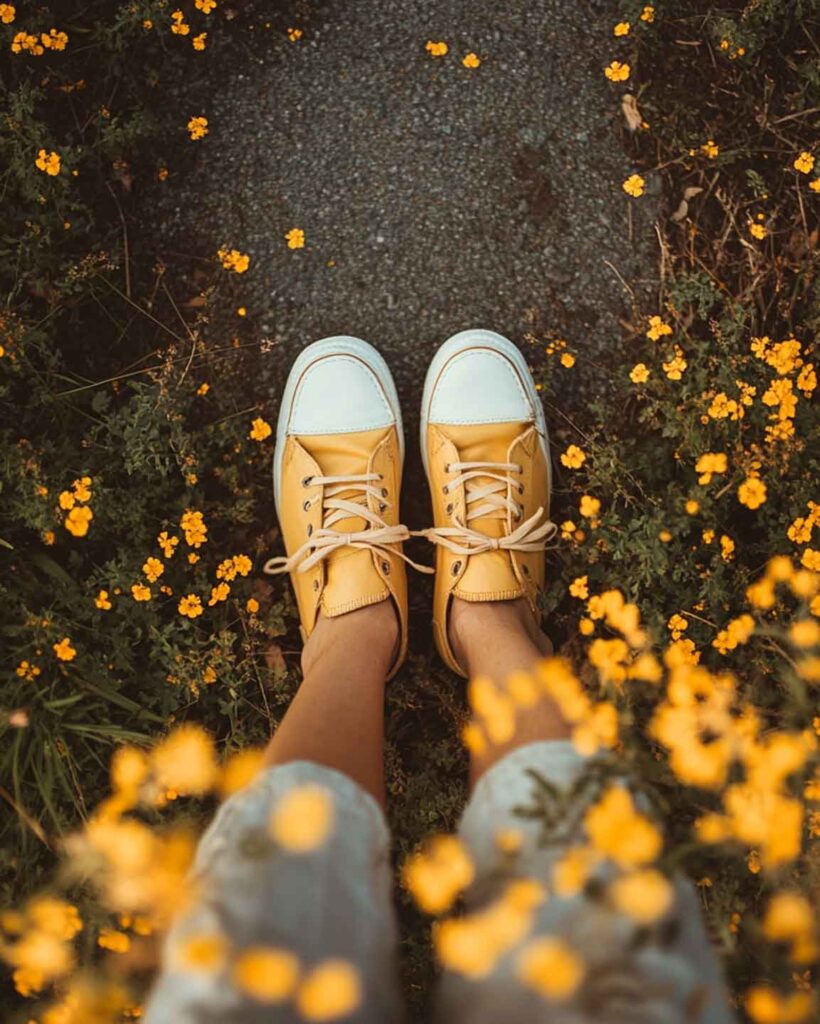wedding
YOU SWIPED RIGHT AND HERE WE ARE.
Jewish wedding. Jewish-ish wedding. We've got you covered.
Jewish weddings have been around for almost 6,000 years, and they’re chock full of beautiful traditions, old and new. The trick is finding the ones that speak to you. The bride and groom are considered the king and the queen at their Jewish wedding, so while we don’t suggest that you go all bride-or-groom-zilla, you should feel free to create a wedding that’s filled with meaning and joy, whatever that means to you. We’ve outlined the basics for you to use as a starting point.

after the ring and engagement
first steps

Planning a Jewish or Jewish-ish wedding? A rabbi can bring meaning, experience, and a contagious joy to your ceremony. Whether you’re navigating interfaith details or just figuring out what a ketubah is, we’ve got you covered. Traditions like time apart before the wedding may not always feel practical, but they’re all about creating moments of sweetness—and we’re here to help you make it all work.

Finding a rabbi
We’d be lying if we didn’t say we think you should work with a rabbi if you want a Jewish, or Jewish-ish, wedding. You’ll get the benefit of years of experience from someone who’s most likely seen it all. Not to mention that marrying people is one of the great joys of being a rabbi and that joy is contagious. If you’re marrying someone who’s not Jewish, don’t let that stop you from finding a rabbi that you love. While some rabbis don’t perform interfaith weddings (don’t get us started), there are plenty who do. Some prefer to co-officiate with clergy from the other religion. Others, prefer to do the ceremony alone, etc. Some rabbis may ask questions, like whether you’re planning to have a Jewish home or raise Jewish kids. These questions aren’t always easy, but they’re good to think about before you tie the knot.
Time apart before the wedding
Pre-Ceremony: The Ketubah And The Veil
After The Hair And Makeup,
But Before The Ceremony
These two traditions take place right before the ceremony:
Ketubah
When you need a ketubah, and someone to tell you what it is! A ketubah is essentially a religious pre-nup, or a marriage contract that’s signed before the wedding ceremony. It outlines the husband’s responsibilities in the areas of clothing, food, sex and just in case, divorce. Today, it’s seen as an agreement of commitment to each other, signed by two witnesses. Technically, the witnesses aren’t supposed to be blood relatives, so signing is an honor that often goes to close friends. Ketubahs are often beautiful, and lots of couples frame them and put them in their bedroom. The cost of a ketubah varies greatly. You can buy them online, like on Etsy, or in most stores that sell Judaica, which is another word for Jewish stuff.
Bedeken
This tradition, which is when the groom sees his bride and then lowers the veil over her face, started thousands of years ago, when Jacob, who thought he was marrying Rachel, was tricked into marrying Leah, her older sister. (We have so many questions about this, like: Why did they use such opaque veiling back then? And wouldn’t Jacob have noticed that something looked off with his bride? But, that’s all for another time.) The groom is sometimes carried to the bride on a chair surrounded by a group of singing friends and family, which is a fun and celebratory way to start the wedding. Some traditions say that the veiling tradition is a symbol of the groom’s commitment to clothe and care for his wife. Others say that it reflects the matriarch Rebekah, who covered her face before she married Isaac, to symbolize that her character and soul were more important than her appearance, and also that she was no longer eligible to other men. So, while it’s not clear exactly why we do it, all those sweet reasons are good ones to consider including this tradition!
the ceremony
HERE COMEs THE BRIDE! (AND GROOM.)

Here’s how a traditional ceremony might go, but as always, you be you.

1. The Processional (aka entering the chuppah)
According to Jewish law, the marriage becomes official when the groom gives an object of value to the bride, aka the ring. Traditionally, a Jewish wedding band is simple, one without stones or a design. Here are a bunch of symbolic reasons for that: (1) to symbolize the hope that the marriage will be one of simple beauty and unharmed by flaw or conflict, (2) the simple band symbolizes a chain that unites generations, (3) the unending circle of the band represents the couples unending love and respect for one another, (4) the circle is a symbol of the eternal nature of the marriage covenant. And who are we to argue with any of those? Some couples use a plain gold ring for the ceremony with plans for diamonds later. Another interesting tradition is that the groom is supposed to give the bride something of value, so it doesn’t really work if the couple exchanges rings, because she doesn’t need to give him anything. But that tradition really seems passé.
2. Circling
You are both so tense, maybe it’s good you don’t see each other, so you don’t break up.
You’re gonna have your hands full in the days leading up to the wedding. That could be the reason that according to Jewish tradition, the bride and groom don’t see each other for a full week leading up to the ceremony, but we’re pretty sure it’s not. Or maybe it’s because it’s super romantic for you to have this extra sweetness of missing your beloved right before the wedding. Even though it isn’t really that practical a tradition for couples today, a bit of separation can help make the wedding day seem even more special.
3. Blessings Of Betrothal
You are both so tense, maybe it’s good you don’t see each other, so you don’t break up.
You’re gonna have your hands full in the days leading up to the wedding. That could be the reason that according to Jewish tradition, the bride and groom don’t see each other for a full week leading up to the ceremony, but we’re pretty sure it’s not. Or maybe it’s because it’s super romantic for you to have this extra sweetness of missing your beloved right before the wedding. Even though it isn’t really that practical a tradition for couples today, a bit of separation can help make the wedding day seem even more special.
4. Rings
You are both so tense, maybe it’s good you don’t see each other, so you don’t break up.
You’re gonna have your hands full in the days leading up to the wedding. That could be the reason that according to Jewish tradition, the bride and groom don’t see each other for a full week leading up to the ceremony, but we’re pretty sure it’s not. Or maybe it’s because it’s super romantic for you to have this extra sweetness of missing your beloved right before the wedding. Even though it isn’t really that practical a tradition for couples today, a bit of separation can help make the wedding day seem even more special.
5. Reading Of The Ketubah
The ketubah is read out loud by the rabbi, and then given to the groom for him to hand to his bride.
6. The Seven Blessings
The seven blessings are an integral part of a Jewish wedding and a fantastic way to include loved ones by giving them the honor of reading one or more of the blessings. The traditional blessings are about (1) blessing life’s sweetness, (2) the interconnectivity and differences of all, (3) the creation of the world and humanity, (4) the unity of loving people and peace in the world, (5) love and partnership, (6) delight and joy, and (7) blessing the couple. After the seven blessings, the bride and groom share a second cup of wine.
7. Breaking The Glass
Stomping on the glass at the end of the ceremony is one of the most recognized rituals of a Jewish wedding. It’s another tradition with lots of interpretations behind it, like: (1) the breaking reminds us that no matter how much joy we are feeling, we can’t forget the losses suffered by the Jewish people, including the destruction of the temple in Jerusalem, and that the world is still in need of much healing, (2) the fragile nature of the glass suggests the delicacy of human relationships and that they must be treated with care, and (3) loud noises scare away demons that are attracted to beautiful and fortunate people. It used to just be the groom who stepped on the glass. These days couples also do it together, or they break two glasses. We find it annoying that some caterers use a light bulb instead of a glass because they make a louder pop when they break — it just doesn’t seem right. No matter what, make sure the glass is wrapped carefully before someone stomps on it, because as we all know, it’s all fun till someone loses an eye. If you go on Etsy, you will find sacks made especially for the glasses.
but wait, there's more!
AFTER THE CEREMONY
It’s not over! We haven’t even danced the hora yet.
Yichud
And you thought your first time was awkward! Yichud is the final part of the service. The bride and groom are supposed to take a few minutes (or more) to have alone time. Back when sex before marriage wasn’t a thing, this is when the marriage would have been consummated.
The party (AKA those chairs)
Jewish weddings are not a time to be shy! There are lots of fun traditions and LOTS of dancing!
One of the party highlights is when the guests hoist the bride and groom up on chairs (sometimes with a napkin stretched between them). A few notes on this: First, never, ever try this with a folding chair — smashed fingers/danger! Second, being up in that chair is a little scary, so just a minute or two is plenty. Third, it may seem like you’re not the closest with the bride and groom and it’ll be awkward if you jump in and grab a chair leg — but we’re telling you those chairs are heavy and it’s all in your head and so if you can, just jump in there and help. This is also no time for sexism — women can help too. Sometimes women lift the bride and men lift the groom. Finally, don’t forget that the parents of the bride and groom should also get a ride.
The hora and other circle dances
No one cares if you know the steps. Have a drink or two if that helps! Just get on the dance floor. Be generous with your Jewish circle dancing — it’s a mitzvah for the bride and groom. Don’t let the band or DJ just do one song and get back to Gloria Estefan — nothing against Gloria, but circle dancing can be the most enjoyable part of a wedding. (True story/note about getting over yourself and dancing: We were guests at a Greek wedding. The line/circle dance looked super hard. We were intimidated and didn’t want to look stupid, so we sat in our seats. The bride saw us sitting there and beckoned us over. We got in there and gave it a shot. Did we catch on? Hell no. Was it the best part of the wedding? For sure!)
Entertaining the Newlyweds
If your guests aren’t experts at Jewish weddings yet, let them know that they have a job to do. Seriously, copy and email this next part to your family and friends or ask someone in your wedding party to.
This is a custom that is making a comeback. In the old days, guests were expected to entertain the newlyweds and that sounds like a damn good tradition. So, bring props, learn a dance, sing a song! Do that old sorority clap or college cheer. Whatever will make the bride and groom smile. As a guest, it’s considered part of your job because they are the king and queen for the day.
wedding prayers and blessings
Kiddush (Blessing Over The Wine)
The Kiddush is the blessing over the wine. Traditionally, a silver goblet is used but you can use whatever you want. Even if just one person makes the blessing, everyone is supposed to partake in the wine (or grape juice), so you should fill everyone’s glass before the blessing is made. There are different customs about whether to stand or sit while receiving Kiddush. Sometimes everyone stands, sometimes just the person reciting stands, sometimes everyone sits. You decide.
Baruch atah Adonai, Eloheinu melech ha-olam, borei p’ree hagafen. Amen.
Blessed are You, God, Spirit of the Universe, who creates the fruit of the vine. Amen.
HaMotzi (Blessing Over The Bread)
Baruch atah Adonai, Eloheinu melech ha-olam, hamotzi lechem min ha-aretz. Amen.
Blessed are You, God, Spirit of the Universe, who brings forth bread from the earth. Amen.
The Shehecheyanu – Generic Prayer Of Gratitude
Baruch atah Adonai, Eloheinu melech ha-olam, shehecheyanu v’key’manu v’higiyanu lazman hazeh. Amen.
Praised are You, Spirit of the Universe, who keeps us alive, sustains us, and brings us to this moment. Amen.
wedding readings
Blessing For Anyone Who Isn’t Jewish (‘Cause We Know This Is A Lot)
May everyone who shares in a Jewish life feel welcome and integrated. We lovingly acknowledge the diversity of our community and are deeply grateful for the love and support you provide by opening your heart to Judaism, no matter how big or small a part it is in your day. Your presence at this Jewish experience is valued. It is not taken for granted because not everyone in this broken world will sit at a Shabbat dinner or attend a Passover Seder. We are a very small people and history has made us smaller. As we once again see a rise in hatred and hear fear in the voices of our community, we are grateful for your presence. We pray with all our hearts that all you give to the Jewish people will come back to you and fill your life with joy. Amen.
Add When Reading To A Family Raising Kids:
We offer special thanks to those who are raising their sons and daughters with Jewish identity. Our children mean hope, life and future. With all our hearts, we want to thank you for your love and willingness in giving the ultimate gift to the Jewish people. Amen.
-Inspired by Rabbi Janet Marder
A Blessing For The Intermarried
Many of you have made the historic and unprecedented decision to raise Jewish children. We will vow never to take this for granted. You come to services, even when it feels strange and confusing at first. You hum along to the Hebrew prayers, and some of you learn to read our ancient language. We know that some of you have paid a personal price for the generous decision you made to raise Jewish children, and giving up the joy of sharing your own spiritual beliefs and passing your own religious traditions down to your kids. Your presence here honors us. Your presence here makes us stronger and wiser.
-Rabbi Daniel Zemel
Love Will Come
Love will come and when love comes, love will hold you.
Love will call your name and you will melt.
Sometimes though, love will hurt you, but love will never mean to.
Love will play no games cause love knows life has been hard enough already.
-Rupi Kaur
Love Like It’s The Only Thing You Know
Most importantly love like it’s the only thing you know how.
At the end of the day all this means nothing.
This page, where you’re sitting, your degree, your job, the money.
Nothing even matters except love and human connection.
Who you loved and how deeply you loved them.
How you touched the people around you and how much you gave them.
-Rupi Kaur
May You Always Feel Loved
May a kind word, a reassuring touch, and a warm smile be yours every day of your life, and may you give these gifts as well as receive them.
Remember the sunshine when the storm seems unending. Teach love to those who know hate, and let that love embrace you as you go into the world.
May you not become too concerned with material matters, but instead place immeasurable value on the goodness in your heart.
Find time in each day to see beauty and love in the world around you. Realize that each person has limitless abilities, but each of us is different in our own way.
What you may feel you lack in one regard may be more than compensated for in another.
What you feel you lack in the present may become one of your strengths in the future.
May you see your future as one filled with promise and possibility.
May you find enough inner strength to determine your own worth by yourself, and not be dependent on another’s judgment of your accomplishments.
May you always feel loved.
-Sandra Sturtz Hauss
Honey From The Rock
Each lifetime is the pieces of a jigsaw puzzle.
For some there are more pieces.
For others the puzzle is more difficult to assemble.
Some seem to be born with a nearly completed puzzle.
And so it goes.
Souls going this way and that.
Trying to assemble the myriad parts.
But know this, no one has within themselves, all of the pieces to their puzzle.
Like before the days when they used to seal jigsaw puzzles in cellophane.
Insuring that all the pieces were there.
Everyone carries with them at least one and probably many pieces to someone else’s puzzle.
Sometimes they know it.
Sometimes they don’t.
And when you present your piece which is worthless to you, to another, whether you know it or not, whether they know it or not, you are a messenger from the most high.
-Rabbi Lawrence Kushner
A Blessing For Friends!
Here with you our friends, we feel so greatly blessed.
We link hands for a moment and feel the warmth of this community.
We are blessed to be surrounded by friends and loved ones here today from near and far.
From years past and from yesterday.
Months go by before we speak to some, others we see daily.
Some share blood or politics and some share experiences and some just a sense of humor and opinions.
The energy that brings people together is a mystery and a gift.
We thank God for our friends and community who have phones that they answer, emails that they respond to, shoulders to lean on and hands to hold.
May we always remember the exquisite value of friendship and community and be good friends in return. Amen.
-A JewBelong Original
To Love Is Not To Possess
To love is not to possess, to own or imprison, nor to lose one’s self in another. Love is to join and separate, to walk alone and together, to find a laughing freedom that lonely isolation does not permit.
It is finally, to be able to be who we really are. No longer clinging in childish dependency, nor docilely living separate lives in silence.
It is to be perfectly one’s self and perfectly joined in permanent commitment to another–and to one’s inner self.
Love only endures when it moves like waves, receding and returning gently or passionately, or moving lovingly like the tide. In the moon’s own predictable harmony, because finally, despite a child’s scars or an adult’s deepest wounds, they are openly free to be who they really are – and always secretly were. In the very core of their being where true and lasting love can alone abide.
-James Kavanaugh
The Home Is The Center Of Judaism
The center of Judaism is in the home. In contrast to other religions, it is at home where the essential celebrations and acts of observance take place, rather than in the synagogue or temple. The synagogue is an auxiliary. A Jewish home is where Judaism is at home, where Jewish learning, commitment, sensitivity to values are cultivated and cherished.
-Abraham Heschel
The Key to Love
The key to love is understanding…
The ability to comprehend not only the spoken word, but those unspoken gestures, the little things that say so much by themselves.
The key to love is forgiveness…
To accept each other’s faults and pardon mistakes,
Without forgetting, but with remembering what you learn from them.
The key to love is sharing…
Facing your good fortunes as well as the bad, together; both conquering problems, forever searching for ways to intensify your happiness.
The key to love is giving…
Without thought of return,
But with the hope of just a simple smile,
And by giving in but never giving up.
The key to love is respect…
Realizing that you are two separate people, with different ideas;
That you don’t belong to each other,
That you belong with each other, and share a mutual bond.
The key to love is inside us all…
It takes times and patience to unlock all the ingredients
That will take you to its threshold;
It is the continual learning process that demands a lot of work…
But the rewards are more than worth the effort…
And that is the key to love.
-Anon
Wedding Short But Sweet
- No it won’t be love at first sight when we meet. It’ll be love at first remembrance cause I’ve seen you in my mother’s eyes when she tells me to marry the type of man I’d want to raise my son to be like.
-Rupi Kaur - “What am I to you” he asks. I put my hands in his lap and whisper, “you are every hope I’ve ever had in human form.”
-Rupi Kaur - You might not have been my first love, but you were the love that made all the other loves irrelevant.
-Rupi Kaur - You’ve touched me without even touching me.
-Rupi Kaur - When husband and wife love each other as they love themselves, honor each other more than they honor themselves, and guide their children in the right path, Torah says of them, you shall know they dwell in peace.
-Author Unknown - The Koretzer Rebbe said, sometimes you may not understand what you are studying then you discuss it with a comrade, and it suddenly becomes clear. Two souls have come together, and it gives birth to new understanding, an
wedding songs
L’chi Lach
L’chi lach, to a land that I will show you
Lech l’cha, to a place you do not know
L’chi lach, on your journey I will bless you
And you shall be a blessing
You shall be a blessing
You shall be a blessing
L’chi lach
L’chi lach, and I shall make your name great
Lech l’cha, and all shall praise your name
L’chi lach, to the place that I will show you
L’sim-chat cha-yim
L’sim-chat cha-yim
L’sim-chat cha-yim
L’chi lach
-Debbie Friedman